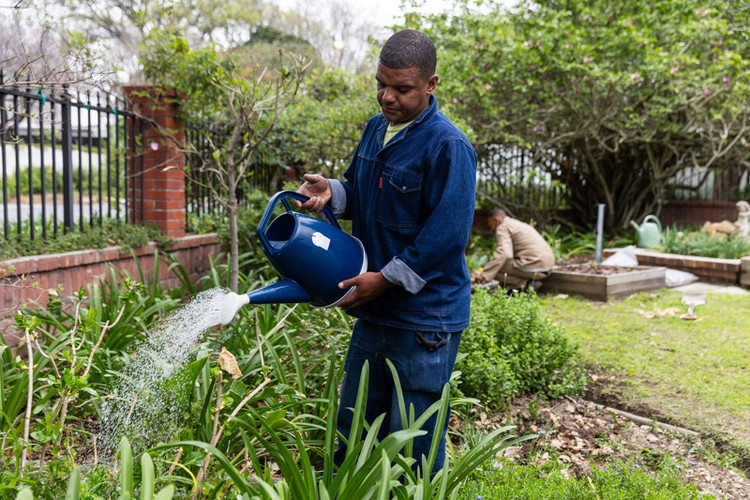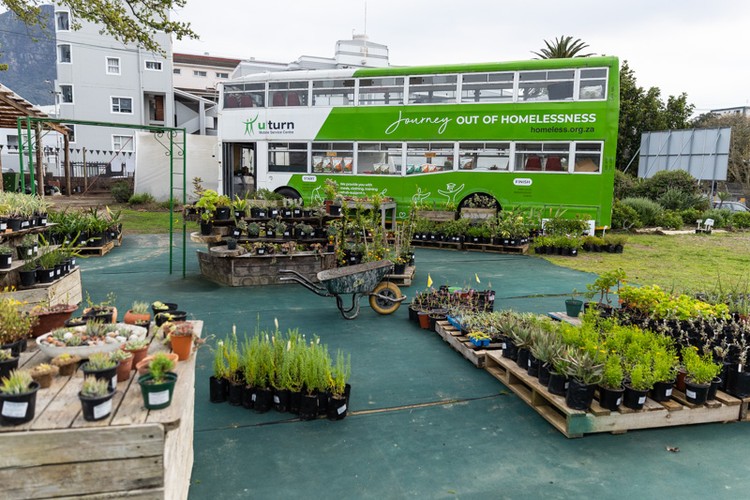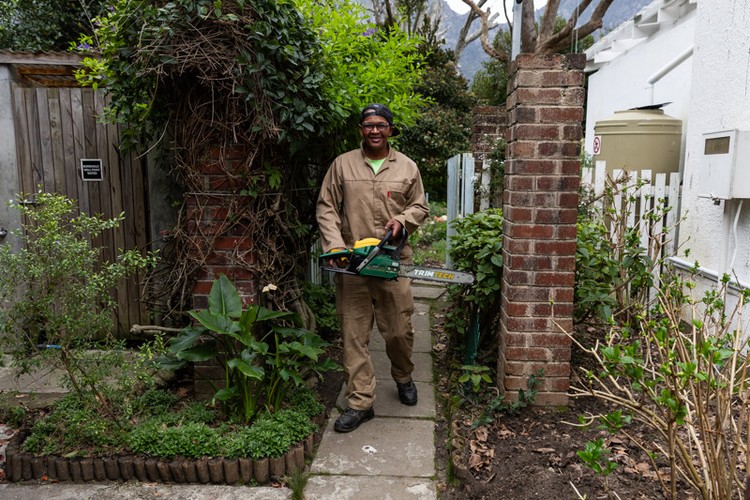Indigenous nursery gives jobs and skills to people facing homelessness
The project is one of several social enterprises run by U-turn
Rashied Sambaba leads the Living Roots landscaping services team. He was homeless and progressed through U-turn’s programme. He now rents an apartment with the money he earns working at Living Roots. Photos: Ashraf Hendricks
An indigenous nursery and landscaping project in Claremont is helping people to move out of homelessness and rebuild their lives.
U-turn’s Living Roots nursery grows indigenous plants and provides landscaping services to houses in the surrounding suburbs. About 15 people work at the nursery, most of whom live in U-turn’s shelters.
Homeless people who enrol in U-turn’s programme go through four phases: support to access basic needs, therapy and rehabilitation, work-readiness and independent employment. Living Roots forms part of the work-readiness phase and is one of several social enterprises run by U-turn, such as charity shops. Participants in these enterprises earn stipends and gain confidence and skills to help them re-enter the job market.
Rashied Sambaba, a team leader at Living Roots, joined U-turn when he was homeless and has gone through the full programme. He received training in gardening. With the income from Living Roots, he has been able to move out of the shelter and into his own apartment.
One of the Living Roots team members, Grant Davids, said he lives by the motto, “You can change”.
“I’m doing what I can to improve myself, gaining skills and knowledge on how to be integrated into society,” he said.
The Living Roots nursery grows and sells a variety of indigenous plants.
We accompanied the team to a home in Newlands, where they provide gardening services every two weeks.
“It’s important to support initiatives like this,” said the home’s owner, Martha le Riche. “Some people are luckier than others, and it’s very hard to make a life for yourself without support. If you put trust in people and give them a chance, it uplifts them.”
U-turn spokesperson Stephen Underwood said Living Roots generates income from plant sales, subletting part of the nursery, grants, and landscaping services.
“The income has to cover stipends, staff, rent, utilities and goods sold,” he said. Additional costs include counselling, food, transport, and accommodation.
“Funding is always a challenge, to keep projects going and hopefully to grow them,” Underwood said. He said income is seasonal, with warmer months performing better.
Living Roots also runs public training courses on gardening and plant propagation. “We are passionate about biodiversity, restoring lives and landscapes, and shifting perceptions about what people experiencing homelessness are capable of,” Underwood said.
Underwood said the landscaping service has been so successful that the team is fully booked and another group will be added soon to meet demand.
David Bent, an intern with the Living Roots project, was once homeless.
Support independent journalism
Donate using Payfast

Don't miss out on the latest news
We respect your privacy, and promise we won't spam you.
© 2025 GroundUp. This article is licensed under a Creative Commons Attribution-NoDerivatives 4.0 International License.
You may republish this article, so long as you credit the authors and GroundUp, and do not change the text. Please include a link back to the original article.
We put an invisible pixel in the article so that we can count traffic to republishers. All analytics tools are solely on our servers. We do not give our logs to any third party. Logs are deleted after two weeks. We do not use any IP address identifying information except to count regional traffic. We are solely interested in counting hits, not tracking users. If you republish, please do not delete the invisible pixel.



